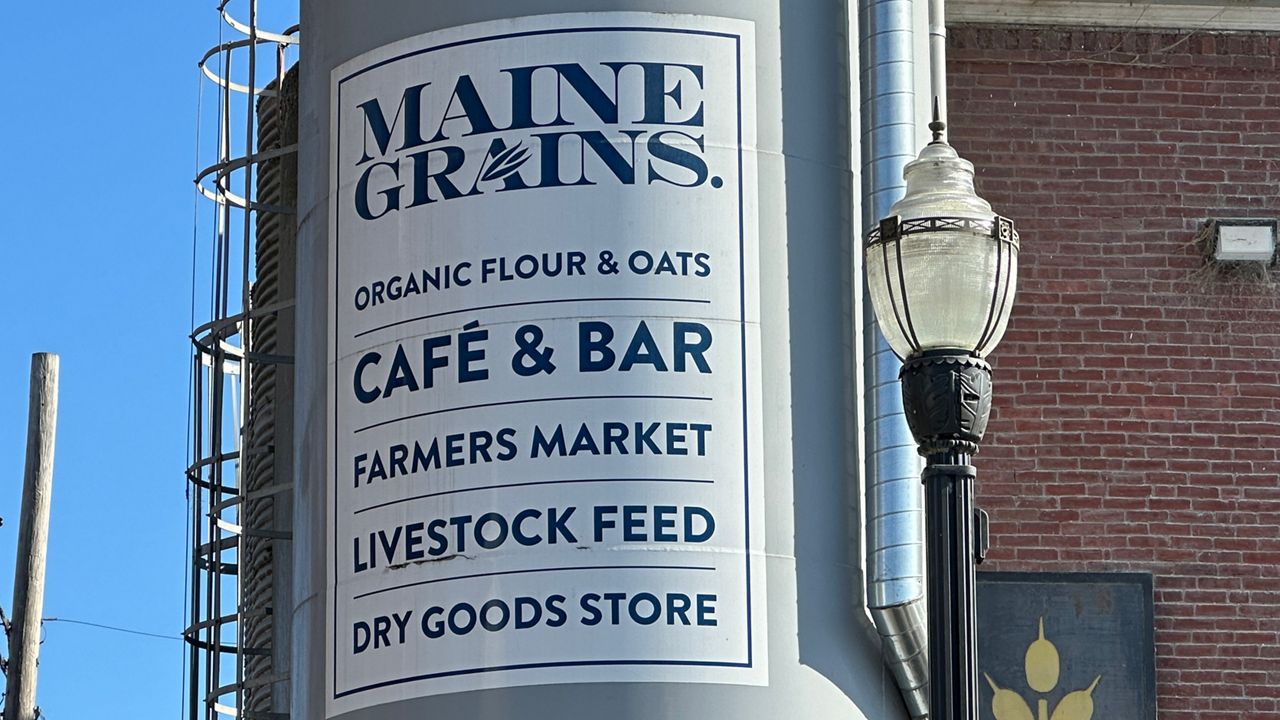A $200,000 grant will help a Skowhegan grist mill buy the equipment necessary to transform locally grown grains into cereals and snacks for University of Maine students.
Amber Lambke, co-founder and CEO of Maine Grains, said her company will buy special equipment from Germany to help them make cereals, bars and snacks out of locally grown grains. The funds come from the Henry P. Kendall Foundation in Boston.
The mill is working on the project with the Skowhegan Economic Development Corporation, food service company Sodexo and the university.
“The University of Maine and Sodexo are committed to increasing their purchases of locally grown food and specifically grains,” Lambke said. “They are very excited to have a ready-to-eat cereal made with Maine-grown grains.”
Those Maine-sourced grains include wheat, oats, buckwheat, rye and other grains.
Maine Grains is one of two Maine-based entitles to get funds from the Kendall Foundation’s New England Food Vision Prizes. The other is Fork Food Lab in South Portland, which will receive $193,369 to find creative ways to “upcycle broccoli” for 14 colleges served by Sodexo.
The lab will develop soups, broccoli-tots and sauces from Maine-grown broccoli byproducts, according to a news release from the Kendall Foundation.
Across New England, nine projects in five states will receive prizes totaling $1.2 million. The idea is to promote the use of local “fish, meat, dairy and grains” at public schools and colleges. The awards issued this year will reach more than 150,000 students at 219 schools, according to the foundation.
And while Fork Food Lab will be working to find creative ways to use broccoli byproducts, Lambke said Maine Grains is already working with a local cheesemaker to incorporate whey into food sold in the café.
“We have figured out here in our café onsite how to use that whey in waffles, scones and other uses, crackers,” she said.
And it doesn’t stop there. Lambke said other industries in Maine, such as blueberry growers and tofu producers, also have byproducts that are food-grade and can be incorporated into other dishes.
Maine Grains launched in 2012, transforming a space that had once been what Lambke described as a “Victorian jail house” in downtown Skowhegan. It’s got 14,000 square feet and four stories.
That works well for the grist mill, which sends grains to the top and moves them through a series of machines to make flour, polenta, cornmeal and other products.
In awarding the funds, the Kendall Foundation said that it wants to honor “transformative leaders” working to strengthen the regional food system.
“More regional food on campus and district menus translates into stronger supply chains, more resilient growers and distributors, and more knowledgeable students who will be tomorrow’s customers,” Andy Kendall, executive director of the foundation, said in a statement.





